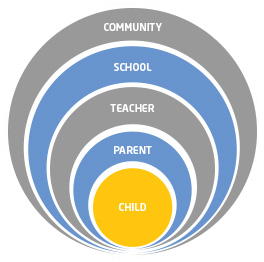Child Development
Child is the primary focus of the Foundation's work. All the initiatives of the Foundation are
driven with the betterment of the child as the goal.
Keeping in line with our broad goal – 'education is a key instrument for shaping and fulfilling the goals of poverty alleviation and rural transformation'; SF schools' core value is inclusive education where children in underserved areas, who are disadvantaged-economically, socially, culturally and gender-wise, are ensured equal access to quality education.
Education plays a vital role in the transformation of the rural population. In order to alleviate marginalization and underdevelopment, we provide and strengthen education provisions not only to meet the basic learning needs but also for grooming children as future citizens.
These schools have the child as the primary focus while teachers, parents and the community are stakeholders who contribute to the growth of the child. Schools supported by the Foundation exclusively serve with the motive of bringing up the children with higher levels of self-respect and confidence to pursue education in their chosen fields. According to the Foundation's philosophy, all the children are allowed to explore and develop their potential with enabling environments and communities who respect them.
Every child needs support from all the stakeholders especially from parents, who play a very vital role. Shriram Schools believe that parents need to take part in their children's education and set top priority for that. SF schools work closely with the parents, and the local panchayat or municipality. Community level issues that affect the children also, like garbage disposal, toilet facilities, etc. are all dealt jointly by the schools and the other stakeholders.
Pre-Primary Section
The curriculum followed in Pre-Primary section in SF schools is a blend of practical and theoretical concepts based on Montessori methodology.
This comprehensive learning methodology encompasses a variety of techniques in teaching and learning. The Montessori philosophy guides the adult
to follow the child and address its developmental needs. The curriculum contains language, sensorial and practical life activities. These activities form a strong foundation for the higher education of the child. This ethos gives the classrooms amicable environments for learning.
